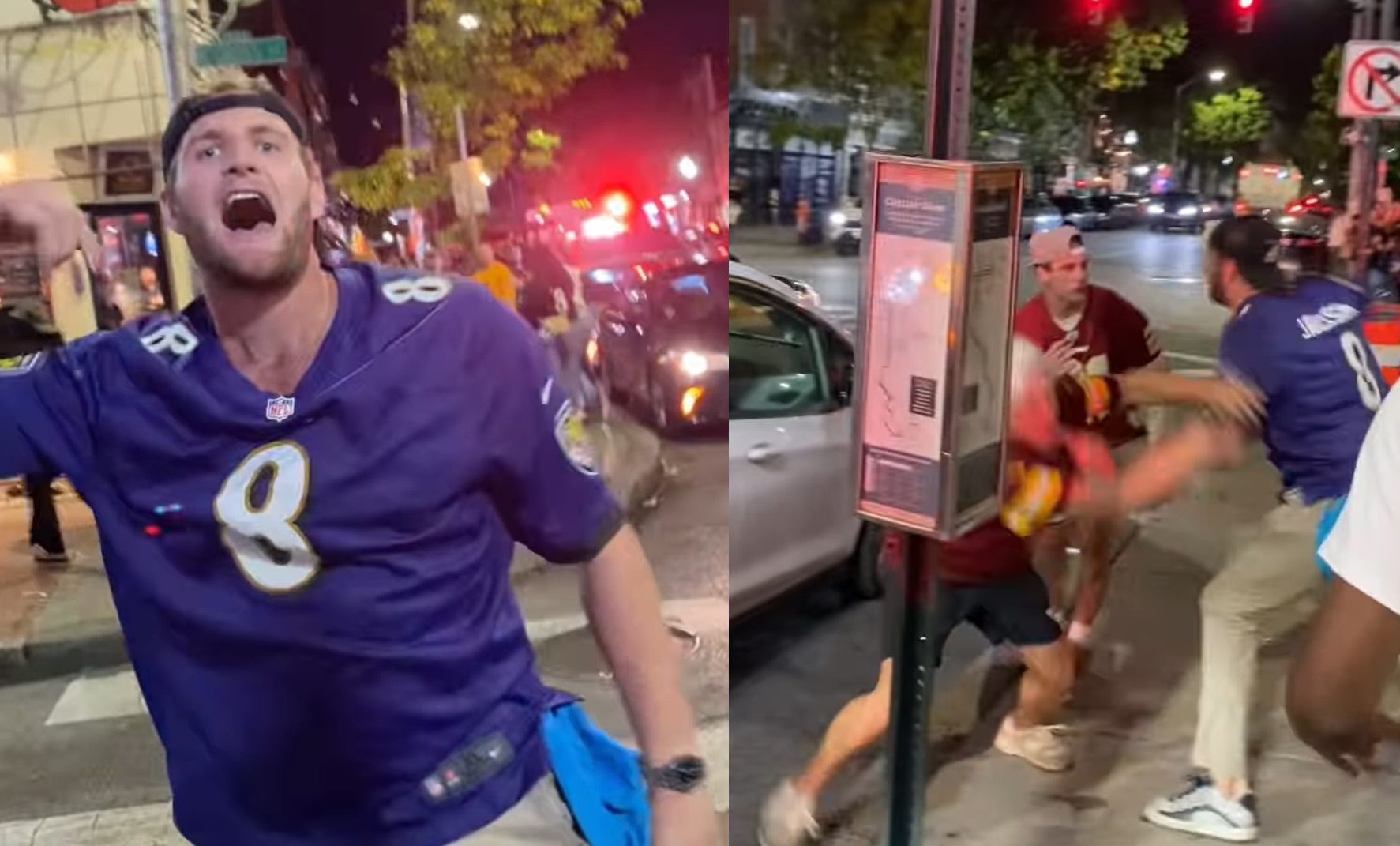Fan altercation marred a Baltimore Ravens victory turned defeat. On September 7, 2025, Ravens quarterback Lamar Jackson was involved in an on-field incident with a Buffalo Bills fan following a touchdown pass during a Sunday night game at Highmark Stadium. The confrontation has ignited discussions about player safety and fan conduct within the NFL, raising questions about appropriate boundaries and potential league repercussions.
The Touchdown and the Tussle
The incident unfolded in the third quarter of the Ravens-Bills game. According to reports from CBSSports.com and other outlets, Jackson threw a 29-yard touchdown pass to wide receiver DeAndre Hopkins, extending the Ravens’ lead to 34-19 with just over a minute remaining in the quarter. As Jackson and Hopkins celebrated near the front row of the stands, an unidentified fan wearing a Bills jersey reached over the barrier.
Multiple sources, including The Guardian and The Times of India, confirm that the fan slapped Hopkins on the helmet before striking Jackson on his helmet. Jackson reacted immediately, shoving the fan backward with both hands. Security personnel promptly ejected the fan from the stadium for violating NFL rules against physical contact with players, as reported by People.com and iHeart (FOX Sports Radio, Sports Radio 93.3 KJR).
Jackson’s Response and Regret
Following the game, which saw the Bills mount a comeback to win 41-40, Jackson addressed the incident. His comments were widely reported by various media outlets, including The Western Journal and Awful Announcing. Jackson stated, “I seen him slap D-Hop. … And then he slapped me. He’s talking, so I just … forgot where I was for a little bit.”
Jackson acknowledged his lapse in judgment, adding, “You got to think in those situations, we got security out there, let security handle it. I let my emotion get the best of me. Hopefully it won’t happen again. I’ll learn from that.” Despite the incident, Jackson indicated that he would continue to celebrate with fans in the future, according to Mediaite and NBC Sports.
NFL Policy and Potential Disciplinary Action
The NFL’s policy explicitly prohibits players from engaging physically with spectators, regardless of who initiates the contact. As reported by Hindustan Times and Sportsnet.ca, this rule aims to maintain order and ensure the safety of both players and fans. While Jackson expressed regret for his actions, the league is now faced with the decision of whether or not to impose disciplinary measures.
Reports are conflicting regarding potential disciplinary action. Some suggest that Jackson will not face any penalties, while others indicate that the league is still reviewing the incident. Any disciplinary action would likely take into account the circumstances surrounding the incident, including the fan’s initial physical contact with the players.
Fan Behavior and Player Safety
This incident has reignited the debate surrounding fan behavior at NFL games and the safety of players. The incident raises serious questions about the level of access fans should have to players and the measures in place to prevent such altercations. The NFL has a responsibility to protect its players from physical harm and ensure a safe environment for all participants.
The rise in passionate fan bases has created an exciting atmosphere at games, but it has also led to instances of inappropriate behavior. The NFL must work to strike a balance between fostering a lively game-day experience and maintaining a secure environment for players and spectators alike. This might involve increasing security presence near the field, implementing stricter rules regarding fan conduct, and educating fans about the consequences of their actions.
The Aftermath: Discussions and Debates
The Lamar Jackson incident has sparked widespread discussions across various platforms, including social media, sports news outlets, and talk radio shows. The incident has become a focal point for debates about player-fan interactions, the limits of acceptable fan behavior, and the responsibility of the NFL to protect its players. Many commentators have weighed in on the incident, offering diverse perspectives and opinions.
Some argue that Jackson’s reaction was justified, given the circumstances. They contend that the fan’s physical contact with the players was unacceptable and that Jackson had a right to defend himself and his teammate. Others maintain that Jackson should have refrained from physical retaliation and allowed security personnel to handle the situation. They argue that as a professional athlete, Jackson has a responsibility to set a positive example and avoid escalating conflicts.
The incident has also prompted discussions about the broader issue of fan entitlement and the need for greater respect for athletes. Some observers have noted a growing trend of fans feeling entitled to access and interaction with players, often crossing the line between enthusiastic support and inappropriate behavior. This trend, they argue, is fueled by social media and the increasing visibility of athletes in the public eye.
Ultimately, the Lamar Jackson incident serves as a reminder of the importance of maintaining clear boundaries between players and fans. The NFL must take proactive steps to ensure the safety of its players and create a culture of respect and responsibility within its stadiums. Only through a concerted effort can the league prevent similar incidents from occurring in the future and protect the integrity of the game.
The fan altercation involving Lamar Jackson underscores the complexities of player-fan interactions and the need for clear boundaries. While Jackson expressed remorse, the incident highlights the intense emotions of the game and the importance of maintaining a safe environment for all. The NFL’s response and future preventative measures will be crucial in shaping fan behavior and ensuring player safety moving forward.


